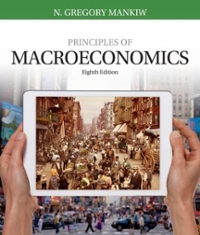Answered step by step
Verified Expert Solution
Question
1 Approved Answer
interest rates to almost nothing and finally to zero. They also printed electronic money to buy trillions of dollars in bonds to push down the
interest rates to almost nothing and finally to zero. They also "printed" electronic money to buy trillions of dollars in bonds to push down the longer-term rates that they can't control directly. When even that left their economies close to stall speed, some central banks in Europe, soon followed by Japan, took things into uncharted territory. They weren't exactly sure it would work, but rates have successfully gone as low as negative 0.75% in Switzerland without huge problems. If bonds and bank deposits that didn't earn anything weren't enough to get money flowing out of people's pockets, then charging people and companies for saving seemed like the logical next step. At the peak about $18 trillion in bonds had negative yields, but actually making individuals pay to leave money in the bank has always been tricky. They could just stuff cash into mattresses. To get around this, a 19th-century economist suggested having a stamp duty on money every year in order for it to remain legal tender. This would kill two birds with one stone since it would be pretty awkward for a criminal like Walter White in "Breaking Bad" to dig up the $80 million he buried in the desert, much less to explain it. More recently, economist Greg Mankiw published a student's idea in 2009 that random serial numbers on bills could be declared void through a lottery, making hanging on to cash risky. Economist Kenneth Rogoff had a more practical idea, but one that might be almost as unpopulargetting rid of
Step by Step Solution
There are 3 Steps involved in it
Step: 1

Get Instant Access to Expert-Tailored Solutions
See step-by-step solutions with expert insights and AI powered tools for academic success
Step: 2

Step: 3

Ace Your Homework with AI
Get the answers you need in no time with our AI-driven, step-by-step assistance
Get Started


